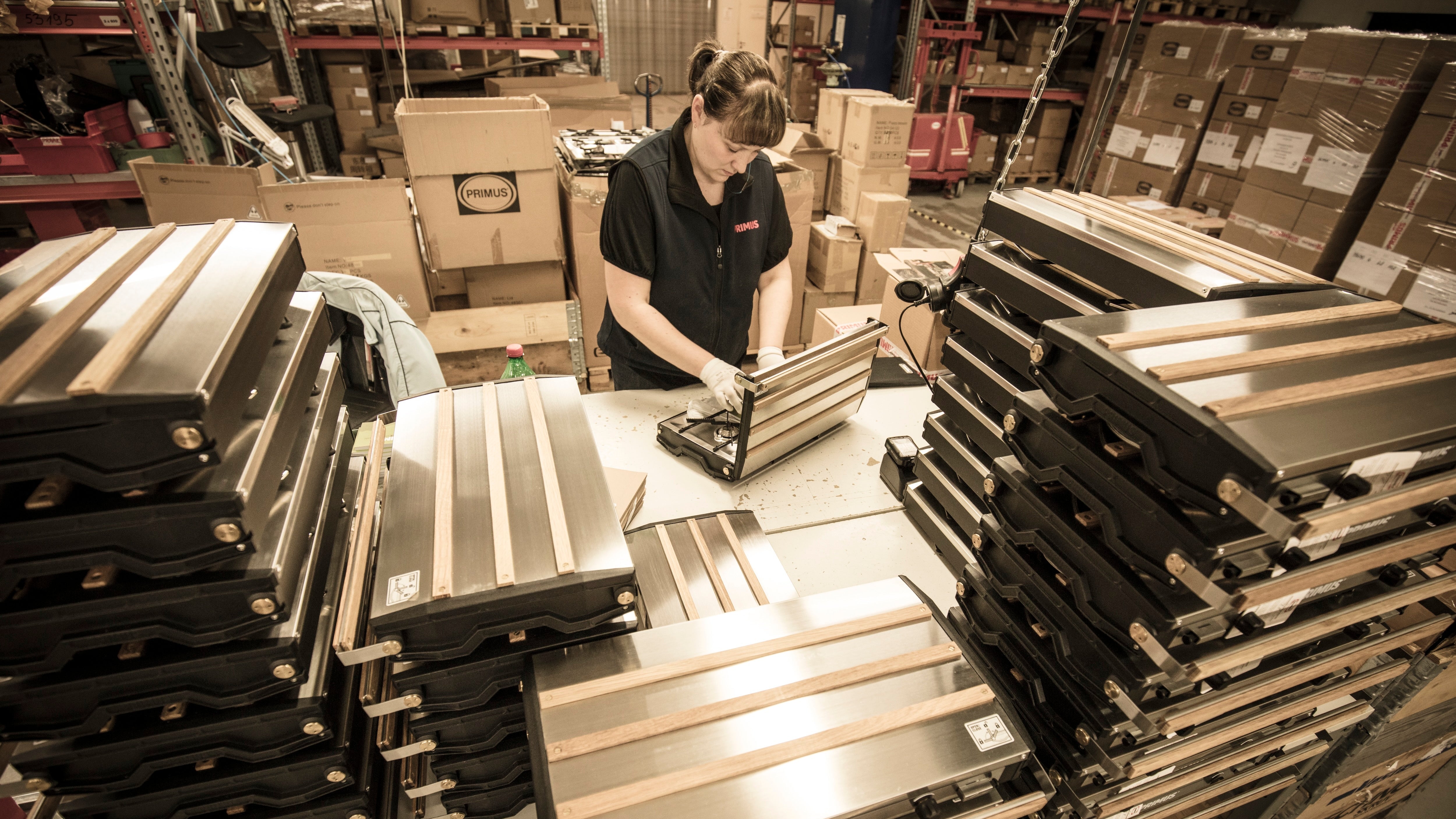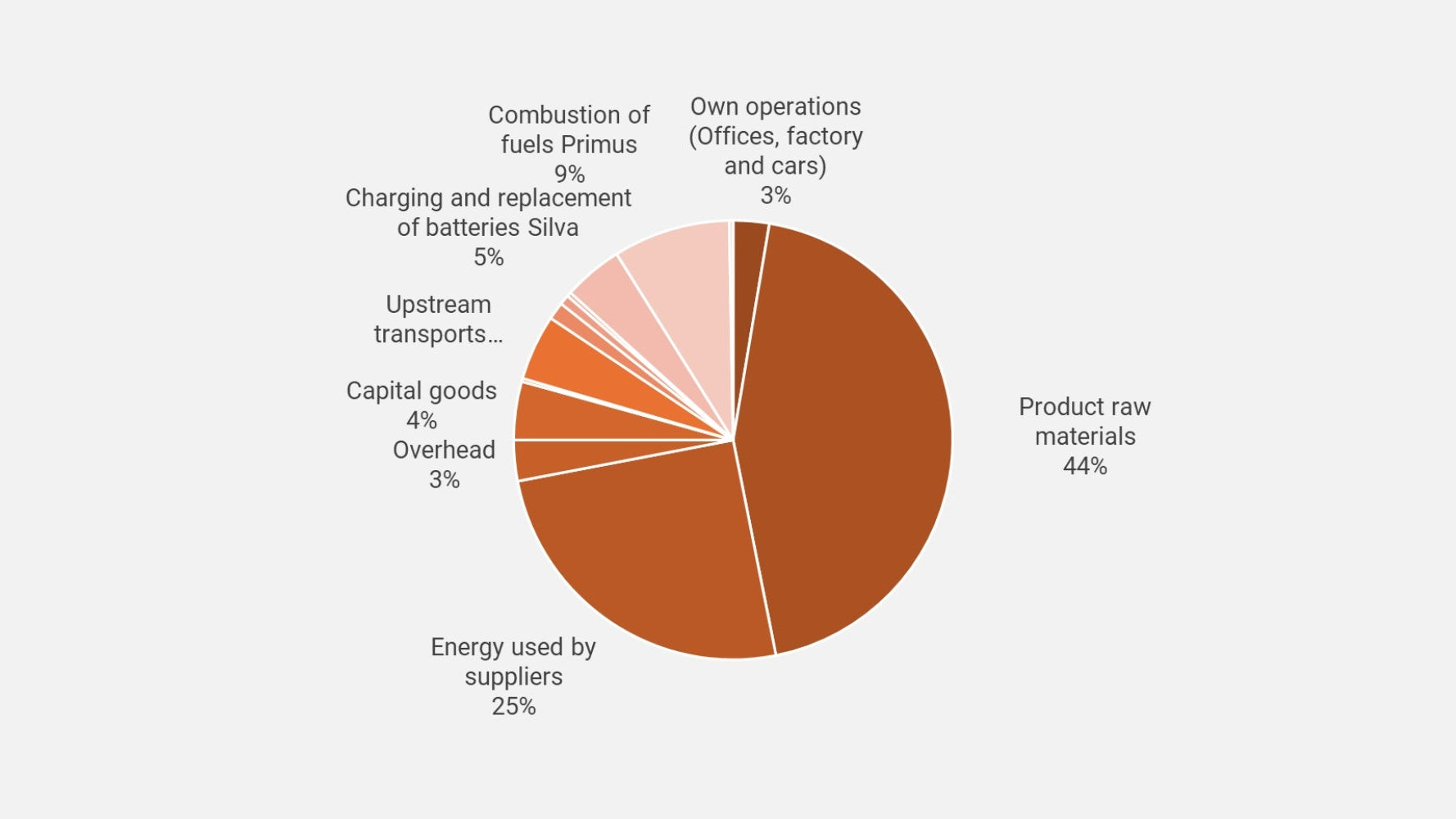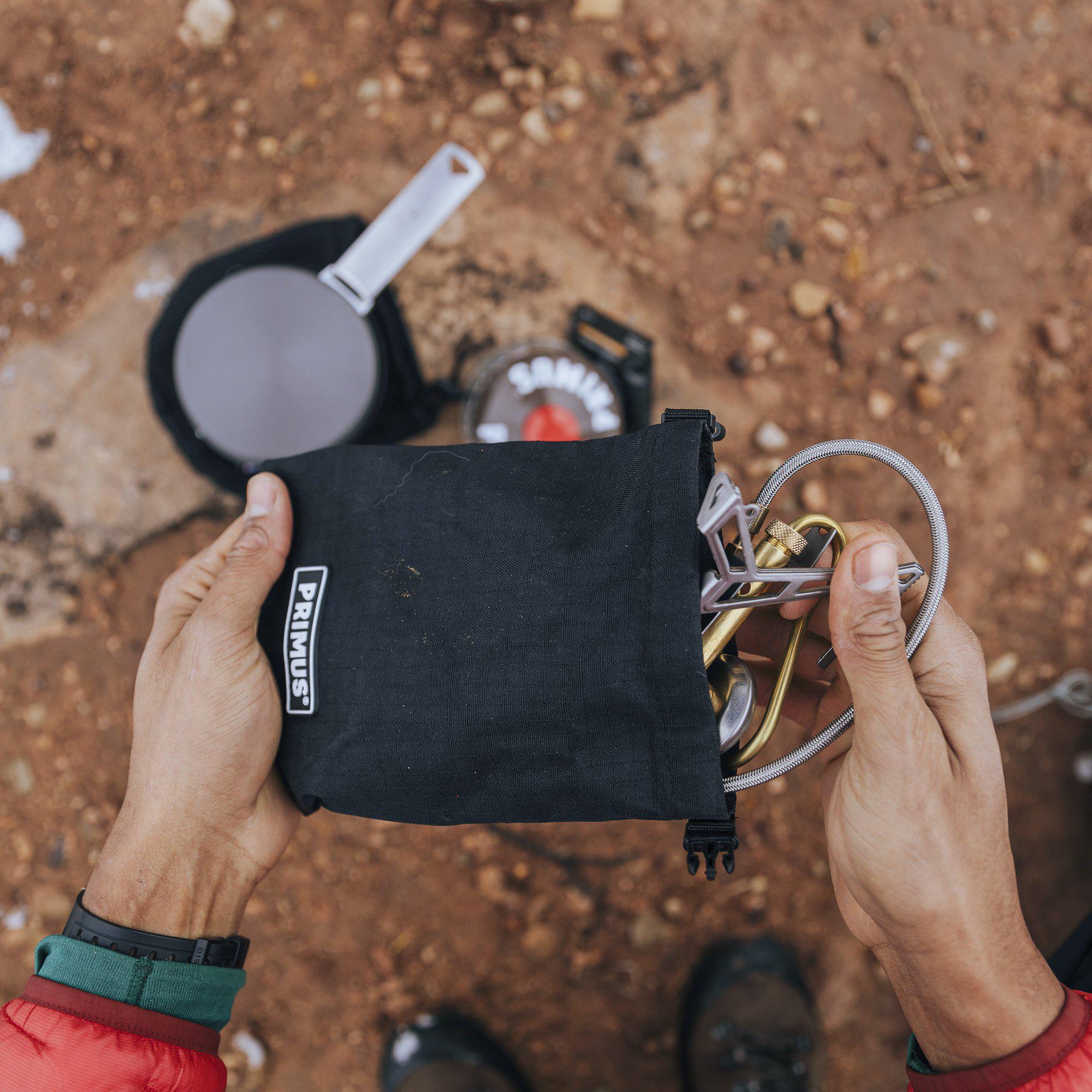PRODUKTION & LIEFERANTEN – ENERGIE & TRANSPORT
Verantwortung in Produktion und Lieferkette
Wir überprüfen laufend unsere Produktion, Logistik und Lieferketten, um Umweltbelastungen zu verringern und gute Arbeitsbedingungen sicherzustellen. Durch die Kombination aus eigener Fertigung und langfristigen Partnerschaften übernehmen wir mehr Verantwortung – für Qualität, Emissionen und soziale Standards entlang der gesamten Kette – von der Fabrik bis zum fertigen Produkt.

Eigene Fabrik in Estland
Fast alle Primus Kocher werden in unserer eigenen Fabrik in Tartu, Estland, montiert. Das bringt uns klare Vorteile:
– Nähe zu unseren Hauptmärkten in Europa
– mehr Kontrolle über Qualität und Produktion
– enge Zusammenarbeit mit unseren Zulieferern
Die Fabrik ist nach ISO 9001 zertifiziert. Eine ISO 14001-Zertifizierung wird derzeit geprüft. Von den rund 60 Zulieferern stammen 23 aus Asien, der Rest aus Nordeuropa.

Produktion und Emissionen
Fast die Hälfte unserer Gesamtemissionen entsteht bei der Herstellung der Primus Produkte. Die Emissionen aus unserem direkten Betrieb (Scope 1 und 2) machen zwar einen kleineren Anteil aus – dafür haben wir hier den größten Einfluss.
– Unser Hauptsitz in Bromma nutzt erneuerbaren Strom und Fernwärme.
– Unsere Fabrik in Tartu (Estland) will bis 2026 komplett auf erneuerbare Energien umstellen.
– Von unseren 21 Firmenfahrzeugen sind zwölf bereits elektrisch, der Rest Hybrid. Unser Ziel: eine komplett elektrische Flotte.

Code of Conduct und Lieferantenbesuche
Alle unsere Lieferanten müssen unseren Code of Conduct, unterzeichnen und einhalten. Er basiert auf dem amfori BSCI Code of Conduct sowie den zehn Prinzipien des UN Global Compact. Abgedeckt werden unter anderem folgende Bereiche:
– Kinderarbeit
– Diskriminierung
– Versammlungsfreiheit
„Wir überprüfen die Einhaltung des Verhaltenskodex durch jährliche Besuche bei unseren wichtigsten Lieferanten.“
– Staffan Till, Sustainability Manager, Primus
Responsibility in the supply chain
Wir sind Mitglied bei amfori und bewerten unsere wichtigsten Lieferanten in Asien über amfori BSCI (Business Social Compliance Initiative). Das Programm hilft uns, soziale Risiken in der Lieferkette zu erkennen, zu bewerten und aktiv zu steuern.
– Im letzten Jahr wurden 15 Tier-1-Lieferanten über amfori BSCI auditiert, drei weitere über Better Work und SMETA
– Zusammen decken sie rund 80 % unseres Einkaufsvolumens ab
– Die meisten wurden mit der Note C bewertet (Skala A–E), vor allem wegen Mängeln bei Überstundenregelungen und sozialen Prozessen
– Es wurden keine Verstöße gegen Null-Toleranz-Regeln festgestellt
Zukünftig wollen wir die Lieferanten aktiv bei der Behebung dieser Punkte unterstützen und amfori BSCI auf ausgewählte Tier-2-Lieferanten ausweiten. Außerdem haben wir begonnen, amfori BEPI zur Bewertung ökologischer Aspekte in der Lieferkette einzusetzen.
Energieverbrauch
Weniger Energieverbrauch in der Lieferkette
Heute stammt etwas mehr als ein Viertel unserer Gesamtemissionen vom Energieverbrauch unserer Zulieferer. Deshalb ist die Reduzierung fossiler Energien in der Kette eine unserer wichtigsten Aufgaben. Wir haben den Energiemix unserer Lieferanten analysiert und arbeiten gemeinsam daran:
– Den Energieverbrauch zu senken
– den Anteil erneuerbarer Energien zu erhöhen.
Mehrere Lieferanten – die rund 35 Prozent unseres Einkaufsvolumens abdecken – haben bereits Solarpanels installiert, um einen Teil ihres Energiebedarfs zu decken.

Energieeffizienz während der Produktnutzung
Wir treiben die Entwicklung voran und gehören zu den Vorreitern im Wandel – gleichzeitig wissen wir, wie komplex das Ganze ist.
– Gas bleibt wichtig: Wir wollen den Wechsel zu nachhaltigeren Alternativen anführen. Aber die Leistung bleibt für unsere Nutzerinnen und Nutzer entscheidend.
– Biogas – eine echte Herausforderung: Isopropan, ein Bestandteil unseres SIP Power Gas, ist bisher nicht in biobasierter Form verfügbar. Deshalb können wir nicht einfach auf Biogas umstellen, ohne bei der Leistung Abstriche zu machen.
Logistik
Unsere Transportemissionen
Wir überprüfen kontinuierlich unsere Lieferkette und Logistik, um die Auswirkungen unserer Transporte zu minimieren. Gleichzeitig wollen wir sicherstellen, dass unsere Produkte in hoher Qualität und zuverlässig bei unseren Kunden ankommen.
Transportbezogene Emissionen werden transparent in unserem Nachhaltigkeitsbericht offengelegt.

Unsere Prinzipien in der Logistik
Wir wägen bei jedem Transport Zeit, Kosten und Umweltauswirkungen sorgfältig ab. Unsere Leitlinien dabei:
– Keine Luftfracht, wenn sie sich vermeiden lässt
– Fokus auf See- und Landtransport, um den Klimaeinfluss zu reduzieren
Sind Sie an der richtigen Stelle
Bitte wählen Sie Ihren Shop aus









